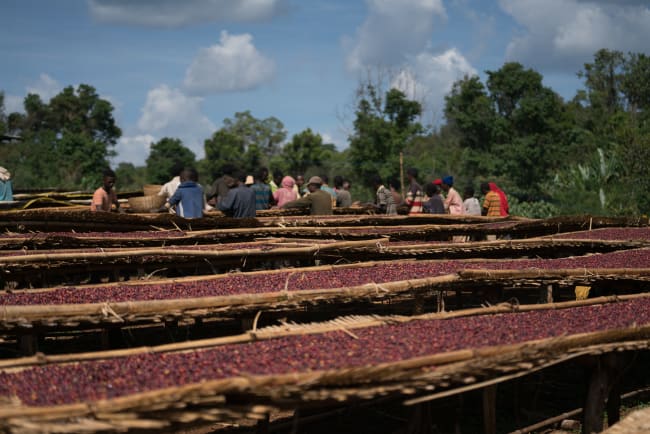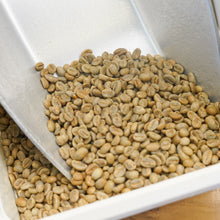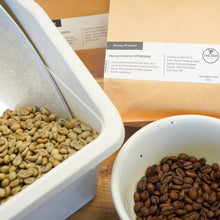
Tasting Note:
Substantial perfumey jasmine and caramel with soft amaretto flavors. Remarkable juicy and tart acidity with fruit-like sweetness.
| Farm | Buncho |
|---|---|
| Process | Honey |
| Variety | Heirloom Ethiopian Varieties |
| Elevation | 1900-2100 MASL |
| Region | Sidama |
| Country | Ethiopia |
| Harvest | November - January |

Buncho
Buncho washing station is located in the Sidama of Ethiopia. This washing station collects cherry from local small farmers in the area.
Its founders Asefa Dukamo and MuluGeta Dukamo opened this washing station under their company Daye Bensa Coffee.
In addition to owning their own farm, Daye Bensa Farm, they also own 16 washing stations and 4 dry mills in Bensa, Aroressa and Chire districts of Sidama.
From Daye Bensa:
Being a child of coffee growing family Asefa used to help his parents in cultivating coffee and other garden crops as all other villagers do but the burden on him was heavy being the first son of his parents.
When he became a teenager he started to do small but many jobs including shoe polishing outside school times which later on progressed to become a coffee supplier to washing stations buying coffee cherries from near by relatives and villagers in addition to coffee from parents garden. By the time he was doing this business there were limited number of washing stations in the area and he had to travel long distances to find a market for his coffee. This was a birth of his dream to become the owner of a washing station if he can help coffee farmers nearby in cutting short their travel time, cost of transportation and of course coffee cherries to be supplies as they are fresh.
His dream became a reality by setting up his first ever washing station in Girja village, less than a mile from his parents’ house with other co-founders holding a major share in 1997 and another washing station in Eltama 30kms away from Girja a year after.
Moving towards the heart of coffee land where he already started living and working after making a family in Daye town in Bensa district he set up a mother washing station called Qonqana (some times called Asefa No. 1 washing station on coffee maps) in 2002, a number one in capacity in the region where many educational trainings and demonstrations take place even by the regional authorities. A dry coffee mill in the town was added to help out with milling the natural coffee. Many expansions and certifications works done since then and now it is one of international coffee visitors destinations in the region.
Coffees in Ethiopia are typically grown on very small plots of land by farmers who also grow other crops. The majority of smallholders will deliver their coffee in cherry to a nearby washing station or central processing unit, where their coffee will be sorted, weighed, and paid for or given a receipt. Coffee is then processed, usually washed or natural, by the washing station and dried on raised beds.
The washing stations serve as many as several hundred to sometimes a thousand or more producers, who deliver cherry throughout the harvest season: The blending of these cherries into day lots makes it virtually impossible under normal circumstances to know precisely whose coffee winds up in which bags on what day, making traceability to the producer difficult. We do, however, make every available effort to source coffee from the same washing stations every year, through our export partners and their connections with mills and washing stations.
Typically farmers in this region don't have access to and therefore do not utilize fertilizers or pesticides in the production of coffee.











